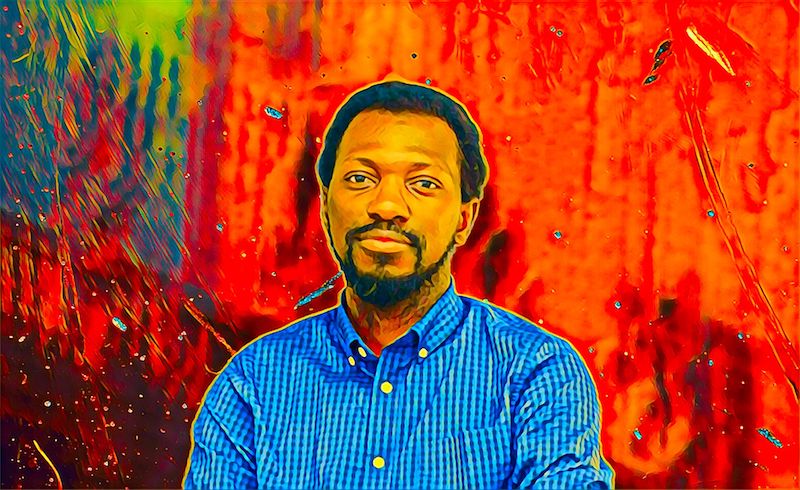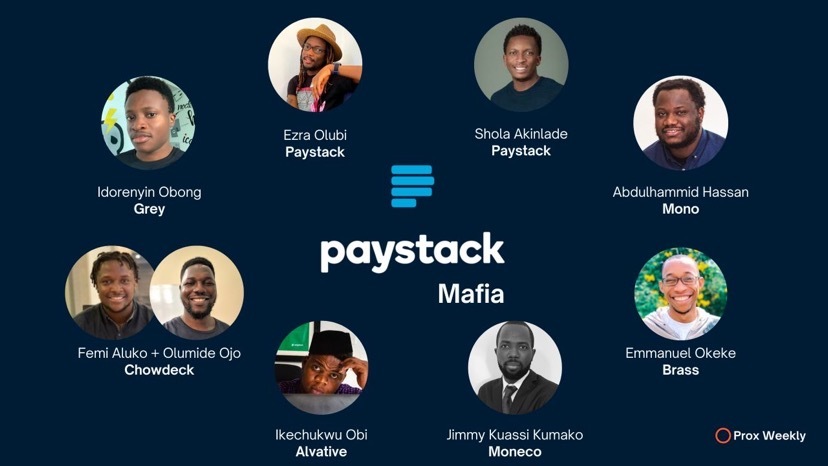It’s our time. So many African Diaspora initiatives are kicking ass and making headlines. But so many more are obscure and lesser known, struggling to make headway. Across the spectrum, from the unicorns to the newly minted, African Diaspora initiatives are failing to build legacy-focused organizations–organizations that stand the test of time. When they fail to do so, they are failing not only themselves but a Diaspora in desperate need of highly functioning, humanist, multigenerational legacy institutions. It’s such institutions that can help us to permanently close the racial wealth gap across the globe.
Skip to: Five Causes
A born ethnographer and creative entrepreneur, I’ve always studied the infinite entrepreneurs and initiatives surrounding me. Between my time in Brooklyn, Yale and Cambridge, I was equally inspired and frustrated by the founders who, stuck on broken records of overwork, burnout and bankruptcy, couldn’t get their much needed initiatives to the place of thriving and impact I knew they were capable of. I was very much on that table. From my Yoruba school to my t-shirt company to NOIR Labs, I have faced the same struggles.
It was my training and experience as a certified project manager and scrum master for organizations like FedEx and Verizon that showed me how easy it could be to implement systems that work.
I took my entrepreneurial curiosity along with my passion for Agile systems to grad school. I had the great fortune of taking business classes at Yale’s School of Management; having my startup incubated at the Tsai CITY Summer Fellowship; being intensely trained at the Harambeans Symposium at Harvard and in Bretton Woods; and devouring everything I could since then about thriving entrepreneurship.
All of this, alongside my own personal entrepreneurial journey has served my startup, as well as the research I started at Cambridge on Diaspora initiatives: worldmaking through cultural production.
What does Failure Look Like?

First and foremost, we must become comfortable with the term failure, embracing our opportunities to fail up as Silicon Valley loves to do. Failure, more nuanced than black and white, is a process that can happen over days or years. Failure is not just about the founder or company but about the community losing the benefits of the initiative. If your organization is in the process of failing, there’s a tremendous opportunity to restore it, with a deep and committed intention to do so.
There are infinite reasons why initiatives fail that will not be the focus of this article. Below are the forms of failure we will focus on.
- Closed businesses / initiatives that are no longer running
- Initiatives with miserable employees, including founders and leadership
- Initiatives facing undeniable Scandals
- Noncontiguous Acquisitions killing original brand vision
- Bleeding money
Causes of Failed Initiatives
#1 – Unsustainable or Non-existent business model
The number one issue most would agree on for Diaspora initiatives is a lack of funding. Yes, this is a race and class issue, but its solutions go beyond inequity to business model design. In an ideal world, every founder with an idea would first master the creation, management and energy of money, identifying an essential product that can fund their business, nonprofit, political party etc. Instead, most initiatives start with a great idea that may make some money eventually, but that requires outside funding. While this works out for some, helping them get their businesses launched, it creates a situation where they are beholden to the desires of funders–whether VCs or donors.
What product do you / can you offer providing an essential benefit to your community or audience?
If every entrepreneurial incubator started by helping founders identify the very thing that they could sell immediately to inspire cash flow, and then helped them get started selling that thing, we’d have a lot more sustainable Black-owned businesses who can write their own future without having to compromise their values, or priorities, for funding.

It’s the lack of a sustainable business model that leads to many other issues and practices causing initiatives to fail: depending on volunteers you can’t pay who have no investment in your success; lack of transparency; clout-chasing; failure to collaborate and many others. Many founders in this situation end up burned out, exhausted, over it. Some make it after cycles of burnout but many don’t survive these cycles of burnout. Depression and suicidal ideation among founders occurs at an unbelievably high rate. Finding your essential product, something valuable you can sell from the beginning–through your essential value-add–is critical to avoiding these cycles of burnout.
#2 – Lack of continuity in business / system design
Most of the founders I’ve worked with initially could not articulate the end game for their initiative, even those running their businesses (side-hustles) for years. A legacy-focused initiative should have its “end” defined from the beginning. That is, the founder’s end in the initiative as well as the initiative’s long term vision well after the founder is gone.
Most of us lack long-term vision and/or the creativity and confidence in our dream that it takes to articulate such a vision. But if we’re sold out to a cause greater than ourselves, we will want that cause to continue well after we’re gone. Articulating this vision supports all other aspects of your business, including recruitment, fundraising, business model cultivation, storytelling/marketing, collaboration and more.
How does your initiative document its journey, process and policies? How clearly and visibly is your initiative’s vision documented? How will your initiative continue to thrive when you’re not able to run it?
From vision comes succession planning, and the desire to support both of these inspires the commitment to creating and preserving institutional memory within your organization. Documentation of an initiative’s story, vision, policies, and processes–and education on this for all new team members or collaborators–is critical for continuity and for succession planning. You should be able to take a week off and know that your initiative will run beautifully without you. Any organization that is to exist long-term must be able to exist outside of its one or few founders or leaders.
#3 – Failure to harness your story
Good documentation makes powerful stories possible. Stories are powerful currency for any business or initiative, but most founders aren’t googleable. Even on their websites, the information about them and their initiative does not tell a clear or compelling story about their why or the future they’re seeking to create.
The story of the future that your organization is creating is a powerful currency you can use to attract volunteers, funders, supporters of all kinds. The story of where you or your organization came from inspires a connection between you, your team and your constituents, so that you’re no longer just a brand, but a tangible part of their real world. They can see that you are real and want to connect even more with you.
What are the most memorable parts of your story? What about your personal journey makes you the ideal person/team to deliver on the vision of your initiative?
Not having a clear story makes it difficult for people to connect with your purpose at the highest level and can stunt your business’ growth. It also makes succession planning and the transmission of institutional memory difficult. A lot of times, outside of the lack of storytelling skill, the reason we don’t tell our story is because of shame. We are uncomfortable with where we are, focused on where we should be, ashamed of the mistakes we made in the past. But these vulnerabilities are what make us human.
Even the richest people in the world have their past shameful moments. If we can be compassionate enough with ourselves to embrace our pasts and grow from our learnings, then there will be no shame in telling our stories. When we do this, we also allow ourselves more opportunity to celebrate our triumphs, because more than likely there would have been many, especially tied up in those particularly difficult moments.
#4 – Lack of Transparency & Failure to align on values

The same energy it takes to embrace our stories is the energy it will take to align ourselves with our truest values. Telling true stories inspires transparency in an organization–among its employees and its constituents/customers. An organization that can embrace transparency is an organization that can lead with its highest values, which is also essential for cultivating thriving teams and communities of customers. When you lead with values, you can not be easily compromised, and you attract like-minded customers, clients, collaborators.
What are your top values? What beliefs would you never compromise on?
When the head of an organization is clear on their values and transparent enough to lead with those values, even as an imperfect servant leader, they inspire all others around them to do the same. This protects organizations from the sort of scandals that can cripple them, destroying their legacy. Every legacy-minded organization should have transparency as its greatest value. In addition, to really be embraced by the Gen Z-led global market, such organizations should prioritize values like compassion, authenticity and accountability to their repertoire.
#5 – Failure to Collaborate–Poor relationship management
The vast majority of Black-owned businesses start out at a disadvantage compared to our white, Asian or Jewish counterparts. In terms of our access to capital, to our market, to the means of production and to media visibility, we are decades behind these other economic blocs. The number one way to overcome this is through collaboration.
But most of us don’t sustain fruitful collaborations. The lack of trust between us is the number one reason for this. Given the above causes of failure, is it difficult to see why we lack trust between our initiatives and businesses? Transparent storytelling and ardent documentation in a values-led organization are the things that cultivate trust. A business that is generating sufficient revenue to advance its cause and keep its employees happy cultivates trust between them and potential partners.
Who do you desire to collaborate with? How can you cultivate trust with them?
One of the most valuable strategies I learned from my time at Yale is something that not even the most profitable businesses I’ve worked for do. What I’ve seen behind the scenes at the most glamorous companies and even the smallest projects can be so alarming that I find myself wondering how these entities continue to exist. Trust building is a science, and it starts with self knowledge and self trust. In order to collaborate well, to collaborate successfully and profitably, Diaspora initiatives must agree to partnerships that prioritize transparency and trust above profit. Though, of course, profit will be an immediate subsequent priority.
This is how we build 100 year+ institutions that will transform the world.
Onward to a Black-Led Future
Every institution begins as an initiative, an idea. A plan, strategy. That idea may go through several different routes to reach its fullest potential, but an initiative becomes an institution when it is able to have a major impact in the lives of millions and survive past the founder’s generation. Most of the initiatives that inspire my work, from New York and beyond, are social enterprises serving a social good while aiming to generate non-donation revenue. I deeply desire to see their success, in ways that match the need for wholistic, values-driven, community-focused businesses and nonprofits serving the Black globe.

I am desperately passionate about successful institution development for Black populations because I believe that the primary cause of the oft-dire state of the Black world is simply a lack of thriving institutions. We don’t have thriving institutions because we previously didn’t have the knowledge or character to build them. Instead we’ve built flimsy “high school projects” masquerading as businesses, non-profits, solopreneurships, social enterprises, political parties, governments etc.
The African Diaspora–especially millennials–have the opportunity and the responsibility to change the world for the better, to make the world a better place for us and for everybody. Because we have been the most marginalized, oppressed, and most harmed people in recent global history, we are the most creative solution designers. History has shown that we also have the most cultural power, the most influence on global culture, as our gifts and talents are highly sought after by institutions of all cultural makeups.
For these reasons, we have the greatest responsibility to build thriving businesses and institutions, institutions that are good for the culture, good for the world, good for humanity. We can not be expected to do this without thorough education and skills building. I call on all incubators and entrepreneurial institutions to apply these teachings with their founders. I call on all founders to apply these teachings in their worldmaking efforts, in order to close the racial wealth gap, building lasting institutions and Liberate our people from within.
